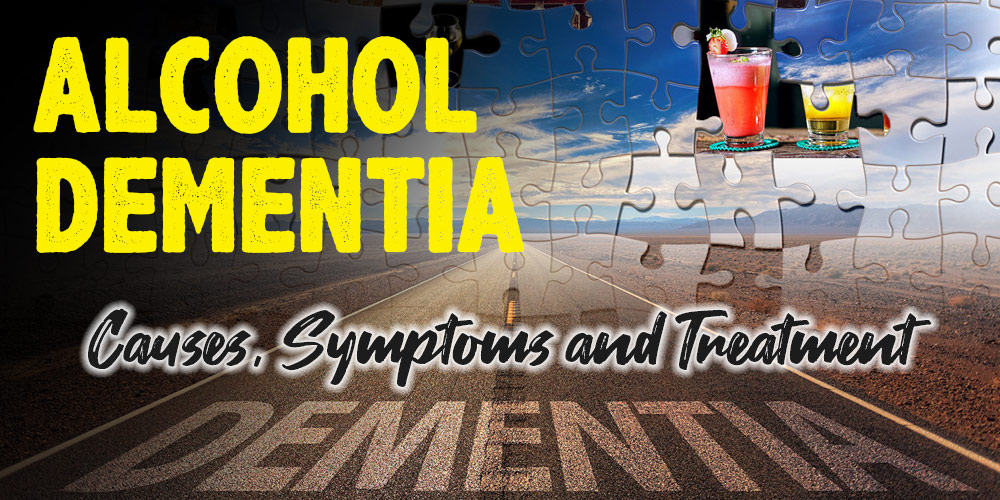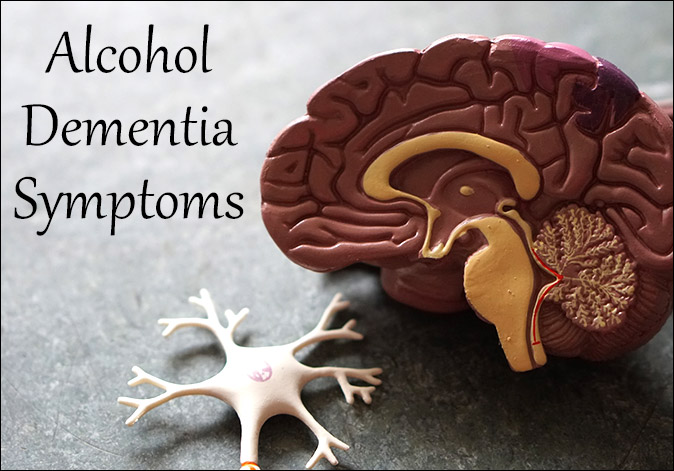
Note: Alcohol Dementia goes by many names including, alcohol-related dementia, alcoholic dementia, and alcohol-induced dementia.
April is Alcohol Awareness Month and it’s an ideal time to examine some of the health concerns surrounding alcohol use and misuse so everyone can be better informed about the dangers of this widely accepted substance of choice for many people.
Alcohol abuse, especially over the long-term, can lead to a number of a negative health issues. It is linked to high blood pressure, damage to the cardiovascular system, an increased risk of heart disease, and some cancers. There is also plenty of evidence to suggest that consuming excessive amounts of alcohol during a person’s life can lead to alcoholic dementia.
When it comes to alcohol-induced dementia, there are several different categories or subtypes of the condition. However, it’s clear that alcohol can injure the brain in a way that intensifies these difficult symptoms.
A 2018 study published in The Lancet Public Health found that heavy drinkers are three times more likely to suffer from dementia.
In the United States, the National Institutes of Health (NIH) reports that nearly 15 million people in 2019, age 12 and older, suffered from an alcohol use disorder.
Understanding the long-term health consequences of alcohol abuse, along with the early warning about alcohol related brain damage is vital for both treatment and recovery.

What is Alcohol Dementia?
Put simply, alcohol abuse can damage both the structural makeup of the brain as well as the way the brain functions.
Long-term chronic alcohol consumption often impairs the brain’s ability to learn new things, in addition to harming a person’s neurological decision-making processes without them even recognizing that there’s a problem.
Perhaps the most famous condition related to alcohol and dementia is a relatively rare disorder known as Wernicke-Korsakoff Syndrome or more commonly referred to as wet brain.
For some people struggling with alcoholism, poor nutrition can lead to a lack of vitamin B1, also known as thiamine, which processes food into energy.
A thiamine deficiency can then deprive the brain of enough energy for normal functions, such as memory, mental clarity, and neurological processes in the body. Left untreated, Wernicke-Korsakoff Syndrome can be fatal.
Alcohol related dementia, though, does not always present as wet brain, which is the most extreme category of this condition.
Chronic heavy drinkers may exhibit symptoms that are more similar to Alzheimer’s Disease, like short-term memory loss. That is considered an early warning sign of brain damage associated with alcohol abuse.
Typical Alcoholic Dementia Symptoms
It may be difficult for people with a long history of alcohol abuse to recognize the early symptoms of alcohol dementia in themselves. It often falls to loved ones, friends, or caretakers to spot the signs and suggest treatment.
While that might be an uncomfortable conversation, alcohol related brain damage from misusing or abusing alcohol over long periods of time may be irreversible if it’s not treated early.

Some of the most common alcohol related dementia symptoms can include the following:
- Confusion or fogginess in relatively normal situations
- Problems concentrating or making decisions that require future planning
- Difficulty managing emotions, like crying unexpectedly or experiencing unexplainable anger or irritability
- Impulse control issues, such as saying inappropriate things
- Memory deficits, or repeating things over and over
- Trouble learning new things
- Personality changes that may lean toward a lack of initiative
- Coordination and balance difficulties
- Vision problems not associated with normal aging
- Changes in personality
These symptoms are usually gradual, and might take time to fully develop before they are noticeable or become a hindrance in daily life.
So understanding the risk for anyone who is a heavy drinker can be important in getting timely help and treatment.
Alcohol Dementia Diagnosis and Treatment
Diagnosing alcohol dementia will likely involve cognitive and neurological testing as well as a battery of blood tests.
Physicians, if they know to test for these issues, will look at thiamine levels in a patient’s blood work among other things. They will want to test liver enzymes and see if the patient is experiencing any neuromuscular issues.
Some of the physical signs to look for during testing include weakness in the muscles, abnormal eye movements, low blood pressure and inconsistencies with the pulse.
Treatment Methods
A positive diagnosis might require hospitalization for initial treatment where the patient can be monitored and receive a proper nutritional regimen.
For some patients in the early stages of alcohol related dementia, abstinence from alcohol, along with thiamine supplements and the introduction of a healthy diet, can improve cognitive functioning and neuromuscular issues over a period of weeks and months.
If alcohol dementia is too advanced though, there can be permanent brain damage and many of the symptoms may be irreversible.
Even in the absence of extreme symptoms, alcohol addiction treatment is often necessary and a good first step. This may include a period of medically monitored detox because many drinkers with advanced disease can experience serious withdrawal symptoms.
Beyond the immediate physical complications of alcoholic dementia, one-on-one counseling, group or family therapy is needed to treat alcohol abuse.
Examining the underlying causes of addiction, as well as developing new life skills, is an important part of recovery and helps prevent relapse.
For those asking, can alcohol cause dementia, the short answer is yes. There is, however, help for people struggling with alcohol use and the earlier they receive, treatment the better the chances are for a successful recovery.
Related Posts
- Alcohol Poisoning and Hangover Symptoms
Most adults who drink alcohol, either regularly or on special occasions, are likely to have…
- Fetal Alcohol Syndrome - What is It and What are the Symptoms?
Did you know that Fetal Alcohol Syndrome (FAS) is the leading cause of preventable birth…
- Wet Brain Syndrome Symptoms and Alcoholism Risks
Wet Brain Syndrome, also known as Wernicke-Korsakoff Syndrome (WKS), is a severe condition that occurs…
